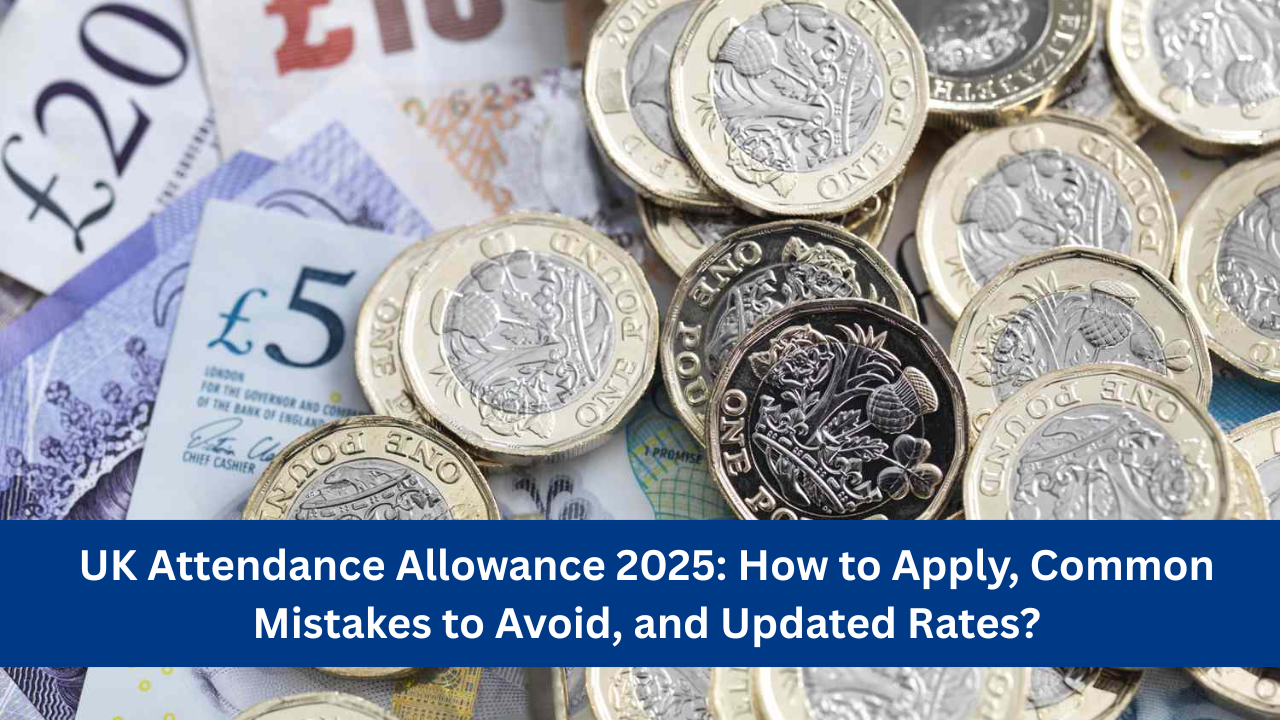Attendance Allowance is a vital government benefit designed to support elderly individuals who have a severe physical or mental disability.
It is provided by the UK government to those over State Pension age who need regular assistance or supervision with daily living activities due to their condition.
This financial assistance helps individuals live more independently by covering the cost of care needed for personal care and supervision.
The benefit is administered by the Department for Work and Pensions (DWP) and is non-means-tested, meaning your income and savings do not affect your eligibility. Additionally, it is a tax-free benefit.
As of May 2025, Attendance Allowance remains an essential lifeline for thousands of elderly individuals across Great Britain.
Requirements to Qualify for Attendance Allowance
To qualify for Attendance Allowance, applicants must meet certain criteria set by the DWP. The main requirements include:
- Age Requirement: You must be of State Pension age or older. As of 2025, the State Pension age in the UK is 66, but this may vary depending on when you were born.
- Disability: You must have a physical or mental disability that requires help with personal care or supervision. This assistance must be necessary for at least six months unless you are terminally ill.
- Six-Month Requirement: Generally, applicants need to have needed help or supervision for at least six months to qualify. However, individuals who are terminally ill are exempt from this rule and may receive fast-tracked claims.
- Residency: To be eligible, you must reside in Great Britain for at least two of the last three years. There are some exceptions for individuals who are part of the armed forces community.
SPECIAL CONSIDERATIONS FOR TERMINAL ILLNESS
Individuals who are terminally ill and have a life expectancy of less than 12 months can apply for Attendance Allowance and will have their application fast-tracked.
In these cases, the six-month waiting period is waived, and the benefit is awarded more quickly to assist with care needs.
RESIDENCE AND CARE HOME CONSIDERATIONS
Attendance Allowance is available only to individuals living in Great Britain. People living abroad do not generally qualify for this benefit, except for members of the armed forces or their families who are based overseas.
In cases where individuals live in a care home, they may still qualify for Attendance Allowance, but only under certain conditions:
- The person must pay all of their care home costs themselves.
- If the local authority fully funds the cost of their care, they are not eligible for Attendance Allowance.
It is crucial to understand these conditions, as they will determine whether or not you can receive this benefit while residing in a care home.
UPDATED ATTENDANCE ALLOWANCE RATES FOR MAY 2025

As of May 2025, the Attendance Allowance rates have been updated to reflect changes in the level of support needed by recipients.
The amount of benefit awarded depends on the level of care or supervision required, not the type of disability. The two levels of support available are:
| Rate | Weekly Amount | Eligibility |
|---|---|---|
| Lower Rate | £68.10 | Need for frequent help or supervision during the day or night. |
| Higher Rate | £101.75 | Need for help both day and night or if the claimant is terminally ill. |
These payments are typically made every four weeks into a bank or building society account. In some circumstances, people may receive weekly payments if specific conditions are met.
How tO APPLY: ATTENDANCE ALLOWANCE FORM (AA1)
Applying for Attendance Allowance involves filling out an application form called Form AA1. The form can be completed in several ways:
- Download and print the form from the official government website.
- Request a form by contacting the Attendance Allowance helpline.
Once completed, the form should be sent to: Freepost DWP Attendance Allowance. Be sure to fill out all sections of the form correctly and provide as much detail as possible about your condition and the level of care required.
ASSISTANCE WITH FINISHING THE FORM
If you’re struggling to fill out the form, you can ask a family member, carer, or someone you trust to help you. Additionally, the government provides guidance notes to help explain how to complete the form, ensuring applicants understand what information is needed.
Assessments and Medical Evaluations
In some cases, the DWP may require additional information to assess the impact of the applicant’s disability. If so, they may arrange a medical assessment conducted by a healthcare professional. This assessment will help determine how the condition affects the applicant’s daily life.
After submitting your form, you may receive a letter with details about the assessment, including the time, date, and location of the appointment.
Common Pitfalls to Avoid When Applying
When applying for Attendance Allowance, many applicants make mistakes that delay the process or lead to the denial of benefits. To ensure that your application is processed smoothly, avoid these common pitfalls:
- Assuming Income Disqualifies You: Attendance Allowance is not means-tested. This means that your income, savings, or assets will not affect your eligibility. Do not assume you don’t qualify based on your financial situation.
- Not Reapplying After Being Denied: If your condition worsens or your care needs increase after your initial application, reapply for Attendance Allowance. You may be entitled to a higher rate or additional support.
- Incomplete Forms: Double-check the form to ensure all sections are filled out accurately. Missing or incorrect information can delay your application.
- Failure to Report Changes: If your condition changes, notify the DWP immediately. If you’re receiving the lower rate of payment and your care needs increase, you may be eligible for the higher rate.
- Not Seeking Help: If you’re unsure about any part of the application, don’t hesitate to ask for help from a carer, family member, or local advice service. It’s better to ask than risk submitting an incomplete application.
Conclusion
Attendance Allowance is an essential benefit for elderly individuals who need extra support due to a disability.
With updated rates and clear eligibility guidelines in May 2025, it’s crucial to apply correctly and avoid common pitfalls. The benefit provides much-needed financial assistance, allowing elderly individuals to manage daily living activities more independently.
If you’re unsure about your eligibility or need assistance with your application, seek help from local advice services or contact the DWP helpline. By applying correctly and understanding your rights, you can access the financial support you deserve.
This article has been carefully fact-checked by our editorial team to ensure accuracy and eliminate any misleading information. We are committed to maintaining the highest standards of integrity in our content.

Deepak Grover is a dedicated content writer at OTE News, specializing in government affairs, public policy, and current events. With a keen eye for detail and a passion for factual reporting, he ensures readers receive accurate and insightful news. Deepak holds a degree in Political Science and has experience in research-driven journalism.
When not writing, he enjoys reading historical books, exploring hiking trails, and staying updated with global political trends. His commitment to ethical journalism makes him a trusted voice at OTE News.




